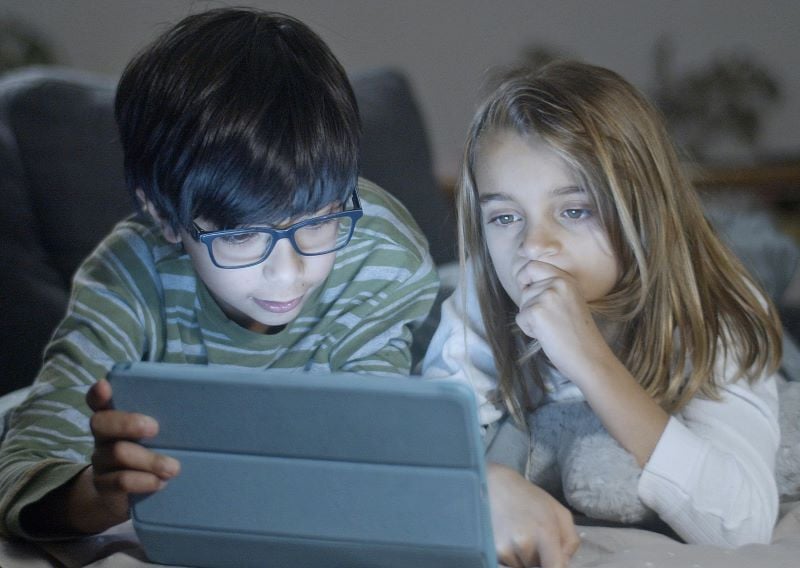
We are facing a generation gripped by a widespread epidemic of myopia, attributed to children's addiction to screens. Physicians have termed this phenomenon as "digital craving," likening it to a craving for sugary foods. Screen addiction, they explain, triggers spikes of dopamine in the brain, further compounding the issue.
More time spent in front of screens, particularly on social media, is significantly shaping the habits, diets, and even mental health of the younger generation. This has become a contentious issue in many households. However, experts have suggested strategies to reduce screen addiction in children. These methods require patience and consistency. Below are some tips that have been shared by trusted sources such as WebMD and NPR.
1. Make access difficult
Creating microenvironments, where device usage is limited to specific areas of the home, can be effective in reducing screen time. Dr Anna Lembke, a psychiatrist at Stanford University and author of *Dopamine Nation*, recommends designating a single room for device usage. A digital detox, where all family members take breaks from devices, can also be beneficial.
2. Screen-free sleep zones
Avoiding screens in the bedroom is key to ensuring quality sleep. Devices in the bedroom often interfere with a good night's rest, making it harder to stay energetic throughout the day. Removing screens from sleep zones, avoiding their use during dinner, and turning them off an hour before bedtime are all strategies experts recommend.
3. Avoid personal devices
Experts advise against giving children their own tablets or smartphones. Dr Steven Gortmaker, a professor at Harvard T.H. Chan School of Public Health, suggests parents should engage directly with their children rather than handing them a device.
4. Adopt alternative habits
Neuroscientist Yevgenia Kozorovitskiy from Northwestern University suggests finding more purposeful versions of screen-related activities rather than cutting them out entirely. With her own children, she carefully chooses complex and cognitively engaging games that require teamwork and strategic thinking. She notes that such activities can foster advanced social and language skills.
5. Watch together
Whenever possible, join your child during their screen time. Being aware of what they’re watching can prevent surprises, especially if a game or programme turns out to be less kid-friendly than expected. Watching together also opens up opportunities for discussion about the content.
6. Ban screens during playdates
It’s crucial for children to have screen-free time when socialising with peers. Setting a household rule of no screens during playdates can encourage active interaction. You can even ask other parents to respect this rule when your child is visiting their home.
7. Lead by example
Children are greatly influenced by their parents' behaviour. Be a role model by following the same screen time limits you set for your children. Be mindful of your own screen use, turning off devices when they’re not in use, and prioritising family time over screen time.
8. Evaluate screen time use
For children who are required to use screens for learning, it’s essential to balance their day with breaks for physical activity. After school, make sure to have a plan in place to store devices out of sight and engage in other activities.
9. Set realistic goals
If your children spend significant amounts of time in front of screens, start by setting manageable goals. Rather than cutting screen time to the recommended one to two hours per day right away, begin by reducing their current screen time by half.
10. Stay engaged
Make an effort to spend face-to-face time with your children after school or work, giving them your full attention. These moments of genuine connection are invaluable to them.
11. Encourage outdoor activities
Taking a walk or playing outside provides a natural boost of endorphins, lifting mood and improving physical health. Encouraging children to spend time outdoors, especially by focusing on distant objects, can counter the damage screens may cause to their eyesight.
In conclusion, reducing screen time in children is not only a matter of limiting device use but also encouraging healthier habits. While peer pressure may affect children's screen time, the influence of a positive family environment cannot be overstated.

















COMMENTS
Comments are moderated and generally will be posted if they are on-topic and not abusive.
For more information, please see our Comments FAQ